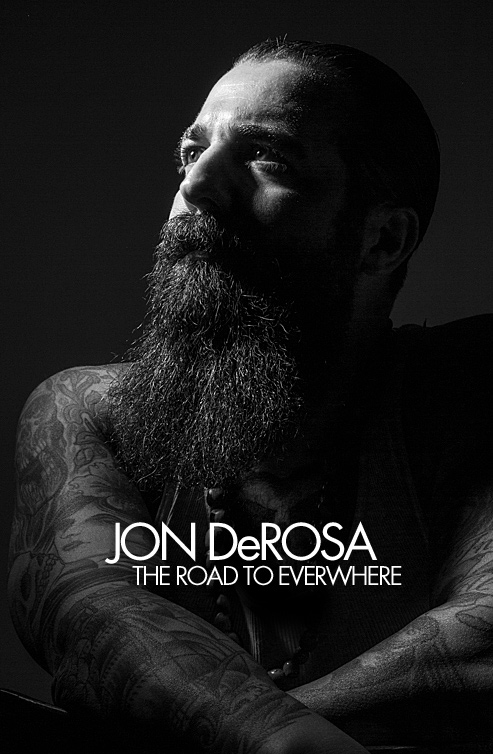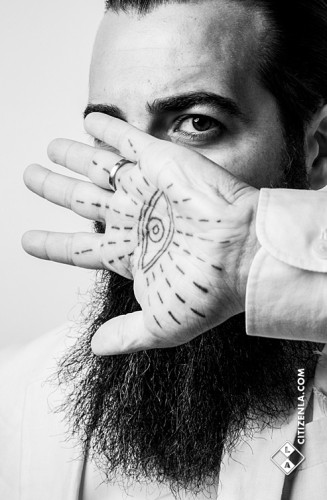
Are we on a path to acquire knowledge outside of ourselves? Or are we merely uncovering information buried within us? And once we find it, where does it lead us? How does it define us?
Each musician has their own beliefs, or explanations, on how they arrive at a given melody, arrangement, song, and so on. Whether an accumulation of events that leads to a spark, or a flash of inspiration that leads to a series of decisions… music, as life, is a series of actions and reactions.
Furthermore, music is deeply rooted within a sense of discovery, which takes place as a result of action. Taking pleasure in our discoveries is one of the indisputable draws of a life dedicated to artistic creation. It is, however, our actions that define us within the musical process, driving us on the road to success.
But becoming who we are starts much earlier than first key note. We may be born into a family of creative types or into a completely non-artistic situation. Then, depending on our philosophies, we choose to surround oneself with a group of like-minded people, or rather are thrust towards an inevitability. Either way change is part of the equation.
Whether by mystical mandate or predestination, people, places and possessions move in and out of our lives. But unless we are open to “change” we will not be in the frame of mind to fully appreciate what is being presented to us, nor will we be prepared take advantage of our transformation.
It’s said that, “when the student is ready the teacher will appear.” Therein lays the importance of preparation within the constructs of change. So do we consciously put ourselves in situations to be enlightened? And are we humble enough to accept the teachings of this “teacher”?
Jon DeRosa –talented musician, budding shaman, and intrepid adventurer– exists as an artist who consciously places himself into situations to reap the benefits of his physical and spiritual personal journey. Whether performing under his name, or performing under a pseudonym, Jon consistently produces music that works on many levels.
His latest musical venture “Black Halo” is noble exploration into the various influences that surround his past and present situation. Moody, romantic, and subtle with a hint of pop nostalgia, the tracks from this LP explore a range of emotions through rose-colored lenses that sit in a frame on a handsome well-traveled face.
Within each of his musical journeys, Jon takes risks, relishes his experiences, and happily moves on to his next mountain. His tenacity speaks volumes of his character and the resulting music speaks volumes of his ability to channel his experiences in a positive direction.
And all of this not without his share of serious setbacks…
Citizen LA: You studied classical music?
Jon: I begged my mom to let me quit high school band. She agreed under the condition that I study classical, as opposed to some of my friends who were getting Rock n’ Roll lessons at the local music store. So, I was deep into classical Flamenco guitar until I got to college.
Citizen LA: That’s an interesting way of being introduced to guitar. Much better than the kid who takes cookie-cutter lessons by a teacher who is often devoid of emotion.
Jon: Well, mom was right on that one [laughs].
Citizen LA: Flamenco performances are pure drama. The seductive dancer slams her heels, the singer cries out, as the guitarist rips his strings apart.
Jon: There are many things happening on stage between the dancers and the guitarist that go beyond the finger picking techniques. Flamenco is never really written down, you know. Every week I learned a segment of a larger piece, so I really had to pay attention. If I forgot, there were no cheats.
Citizen LA: Wow, that makes it even more mysterious. And I’m sure Flamenco allowed you to become a bit more “worldly.”
Jon: The culture did seep in and took me in different directions. I was working with many composers in many different time periods. However, I leaned towards Andrés Segovia which was a nice blend of Flamenco and Classical studies; beautiful and technically interesting. I was influenced by Baroque as well.
Citizen LA: And, you also studied Indian music?
Jon: Right around the time that I was accepted into the technology program at NYU, I lost hearing in my right ear. Not something that you really need when you’re about to study recording and composition.
Citizen LA: Ouch.
Jon: During that time, I began volunteering at the Dream House; a minimalist sound and light environment by La Monte Young and his wife Marian Zazeela. La Monte heard that I had hearing loss, and said he could ‘help me.’ That’s when I fell into Indian Classical Music. When you learn Ragas, you’re usually accompanied by a Tanpura, a drone instrument. The music is microtonal, so I got into tone and vibration, and deep listening. Through that I was able to learn how to hear, again.
Citizen LA: Classical Indian is deep, hypnotic, and transcendent. Though Flamenco seems more attuned to base sensuality, all those wonderful terms can also be applied. Flamenco and Indian, they’re similar in a sense.
Jon: Definitely.
Citizen LA: So the change from the East Coast to the West Coast… how did that fit into your personal journey?
Jon: I had many spiritual pursuits when I was younger, including studying herbal medicine, but much of that went away when I lost my hearing at eighteen. I couldn’t channel the inspiration of New York in a productive way. So, spiritual work was replaced by a lot of numbing.
Citizen LA: It’s easy to slip into destructive thoughts when you’re vulnerable.
Jon: Frankly, I was pissed-off. Then, I connected with someone here in LA and began studying transcendental meditation. I remember my teacher saying ‘Ok, Jon, for this first week, NO alcohol and NO pot.’ I thought to myself ‘man, that’s gonna be pretty hard!’
Citizen LA: What chu talkin’ about Willis??!!
Jon: [laughs] Yeah. I was a functional stoner. She said, ‘Well, you can go back to it after this week.’ But at the end of the week, weed wasn’t doing it for me anymore. When your mind is clear, and open, and quiet, you realize that there’s a lot to absorb.
Citizen LA: Clarity leads to a reboot.
Jon: I recently reconnected with a friend after fifteen years who told me he was a shamanic healer. He invited me to trip he was organizing to Peru.

Citizen LA: Wait… did you do the Ayahuasca thing?
Jon: Yes.
Citizen LA: It’s good to know that there are many people opening up to Ayahuasca. A friend of mine goes often, and I’ve seen the results.
Jon: Unfortunately, there are many who aren’t ready for it, which has exposed charlatans who prey on tourists. The legitimate ones, however, are amazing. I can’t speak highly enough about it. After my first experience, I said I would NEVER do it again. Then two days later I was doing it AGAIN.
[Laughter]
Jon: I’m sure I’ll be saying the same thing again next time. It’s hard to describe how you can go though something so physically and emotionally taxing over and over. But the fact that we do, is a testament of the great power and healing behind it.
Citizen LA: When my mom died I took part in a temazcal and other ceremonies. The interesting part is that you end up leaving some people behind, and finding new people. There’s this whole group waiting, who “get you.” It’s kinda crazy.
Jon: Pursuing this can really complicate things. You take these gifts, what you’ve learned, and try to integrate them in your day-to-day. And it’s not easy. Cuz once you see how it is, you’re imbued with this responsibility. You can’t go back to ignoring that.
Citizen LA: Jon’s been unplugged from the Matrix. Congratulations.
Jon: Thanks!
Citizen LA: So Jon pulls himself out of a situation in NY, finds another situation in LA, and from that comes new music. I listened to the Aarktica, then to the Black Halo album, and sensed an intentional simplification. How have things progressed?
Jon: Black Halo is the second full-length that I’ve done under my own name. The previous was a specific late 50s early 60s pop thing. Black Halo has all those influences, but more organic and atmospheric, and that’s where there’s a lot of the Aarktica influence. It’s not as straight forward.
Citizen LA: At the end of it all, when you look at all those songs, is that a part of your life that you’ve encapsulated and now it’s time to move on?
Jon: I’m a big fan of having the experience, diving into something really deeply, and then moving on to the next one. I tell Nicole (Poulos) ‘I don’t know if I wanna play some of these songs, I’ve been playing them for a long time.’ She says, ‘But they’re NEW to everyone else!!’ [laughs]
Citizen LA: Smart girl. So, what’s the main difference in performing as Jon or performing as Aarktica?
Jon: I’m really much more comfortable performing as a pseudonym; it’s more mysterious. Also, when you play under your name, you’re putting a lot more on the line. In general, Aarktica tends to be more ambient, and largely instrumental. They’re very different contexts.
Citizen LA: Similar to painting a formal as versus an abstract painting. When people won’t be judging you by preconceptions, but rather coming up with their own story.
Jon: Yes… It’s also about doing the thing that’s honest, and putting out your work and not worrying about anything else.
***
Jon DeRosa is on his path to self-discovery and is continuing to produce a body of work that entertains and heals. He has been presented with his hurdles, and accomplished his milestones while remaining open to the benefits of change on the road to everywhere.
The mandate of a mother, which at first glance may seem a decision made for us, may actually be an inevitability such as the needle which follows the grove of a record. But then one must ask… who decided to play that record, Jon?
